electropoetics
Elpenor: its multiple poetic dimensions
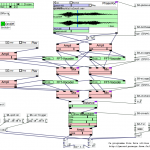
Through performances and readings configured across multiple screens, Phillippe Bootz conveys practices of constrained writing (and interrupted reading) into multiply mediated poetic dimensions.
Descending into the Archives: An Interview with Hypertext Author Bill Bly
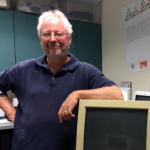
Here we transcribe an extended conversation between hypertext author Bill Bly and Ph.D. candidate Brian Davis that began in January 2018 at the Maryland Institute for Technology in the Humanities (MITH), home to The Bill Bly Collection of Electronic Literature. They discuss Bly's long-term electronic hypertext project, We Descend, Archives Pertaining to Egderus Scriptor (1997-present), as well as the history of electronic hypertext and hypertext theory, the technological challenges of born digital writing and archiving, book-archives and archival poetics, and the value of innovative writing and deep reading amidst the current century's "hodgepodge," "higgledy-piggledy" social media.
The Memory of the Memory of We Descend
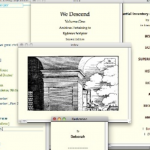
Swigart's response, and reminiscence.
Monstrous Weathered: Experiences from the Telling and Retelling of a Netprov
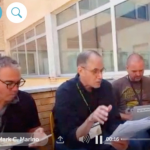
A consideration of Monstrous Weather, a recent netprov (or networked improvisation) and the ways that collaborative storytelling encourages the rereading, retelling, rewriting, and adaptation of stories that begin as performances, and then turn into a form of archiving through still further rereading, rewriting and retelling. Author Alex Mitchell begins by depicting how, during the original performance of Monstrous Weather, there was a constant reworking, remixing and retelling of texts, both literally and through references and embellishments. This process gradually coalesced the loose collection of story fragments into something that had a kind of coherence, if not as a story, then at least as a storyworld. Mitchell discuss two particular performances/remixes: a live reading of excerpts from the netprov performed at the Electronic Literature Organization (ELO) Conference 2017 almost exactly 1 year after the initial performance, and a subsequent hypertext remix/archive.
An Mosaic for Convergence
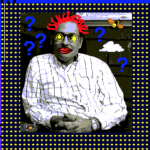
An Mosaic for Convergence, Charles Bernstein's hypertext essay from ebr Issue 6 in the Winter of 1997-1998, explores the ramifications of a literature that is not structurally challenged, but structurally challenging. By then, Bernstein could sense a shift in literary sensibility, where it was beginning "to seem as natural to think of composing screen by screen rather than page by page." That was a few years after the flourishing of hypertext, but before the internet made reproduction of our print corpus a dominant practice (as e-books, primarily, with very little print/screen interplay or reader/author/programmer interchange). The moment Bernstein describes, and its instantiation on ebr's Alt-X legacy site, seems to the ebr editors something worth preserving - if only as a measure of recognized literary possibilities that have not been realized.
Bernstein's essay is the first of many that will be recovered by ebr co-editor Will Luers, and re-produced in the journal's version 7.0 (circa 2018-2019).